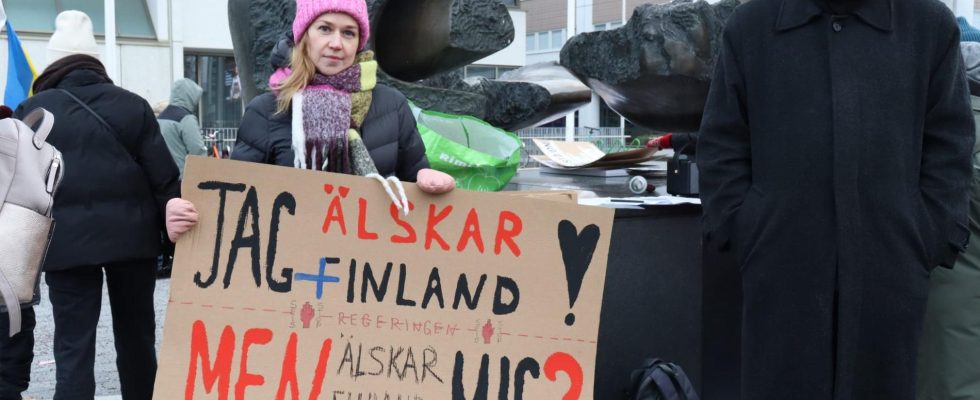1 / 5Photo: Ksenia Ievleva/private
In November, Finland decided to close all its border posts on the country’s border with Russia.
For Finland’s Russian-speaking minority, the decision has major consequences, according to Katja Marova, who lives in the border town of Villmanstrand.
– Many have sick parents on the other side of the border whom they cannot see during their last days, she tells TT.
Every Christmas, Katja Marova usually packs the car full of Christmas presents and drives the roughly 20 miles from the Finnish border town of Villmanstrand to St. Petersburg in Russia. Her old parents live there – and she lived there herself before she moved to the city in South Karelia 13 years ago.
But after the Finnish government decided on November 28 to close the country’s nine border crossings with Russia, there will be no joint Christmas celebration for Katja Marova and her family this year.
– Now I can only get to St. Petersburg via flight to Turkey, or by driving via Estonia. But I have an old car and I don’t dare go out in the middle of winter on the roads on the Russian side of the border with Estonia, as they are in very bad condition, she tells TT.
– And it feels like an insane trip, when it usually only takes a couple of hours to drive to St. Petersburg.
“Many do not dare to speak Russian”
Villmanstrand, which is only 25 kilometers from the Russian border, has Finland’s largest Russian-speaking minority. 3,000 Russian speakers live in the city, which for many years had a lively economic and cultural exchange with its Russian neighbors. Thousands of Russians then traveled across the border every day to shop, while many Villmanstrand residents instead traveled to St. Petersburg via an express train that only took 1.5 hours.
But after Russia’s full-scale invasion of Ukraine, a lot has changed for the Russian-speaking minority in the city, says Katja Marova.
– I am not afraid to speak Russian because I am confident in myself, but many no longer dare to do so when they are out on the town. And it’s sad to see, she says.
Finland’s government decided to close the border after several hundred asylum seekers made it to the country’s border crossings over a few weeks in November – many of them on bicycles. The Finnish authorities believed that it was a Russian attempt at a hybrid attack, and decided to close the border stations until December 13, citing threats to the country’s security.
Among the Russian-speaking minority in Finland, concern is now growing that the border between the countries may remain closed, says Katja Marova.
– My parents are at an age when anything can happen, which makes me very worried, but for others it is even worse. Many have sick parents on the other side of the border whom they are now unable to see during their last days. The border closure affects a lot of people, she says.
Demonstration against border closure
A couple of weeks ago, Katja Marova together with other Russians organized a demonstration in Villmanstrand to keep at least one of the south-eastern border crossings open.
300 people gathered outside the city hall in the city, but the demonstration also provoked negative reactions among part of Villmanstrand’s Finnish majority, Marova believes.
– They believe that we support Russia’s war of aggression – that we are Putin supporters and that we do not care about Finland’s security. But we absolutely do not support Russia’s actions in Ukraine – not in any way, she says.
Whether the border with Russia will remain closed is unclear – but in Villmanstrand, the Russian minority is planning for a different Christmas this year, according to Katja Marova.
– We have a Whatsapp group with close to 700 members where we try to organize a Christmas celebration for everyone who is left, she says.
– Because when we can’t meet our families in Russia, we have to try to support each other here instead.
FACT The border town of Villmanstrand
Villmanstrand, whose Finnish name is Lappeenranta, is a residential town in South Karelia, about 25 kilometers from Russia.
Before the pandemic, Villmanstrand had 1.8 million visitors from Russia annually. During the year, the city started a partnership with the northern Ukrainian city of Chernihiv.
Finland’s 1,340 kilometer long border with Russia is the longest border with the country in Europe.
At the border outside the city of Imatra, which is approximately 35 kilometers from Villmanstrand, the construction of a three-meter high security fence began in early March.
Read more
